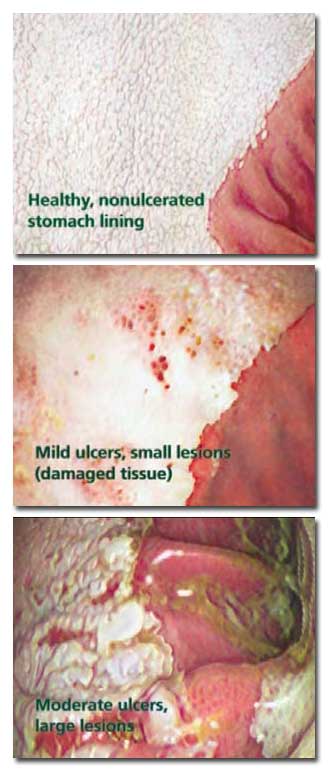
Did you know that a horse’s stomach could produce up to 16 gallons of acidic fluid every day? Excess acid in the horse stomach is the main cause of EGUS. Gastric acid can eat through the protective lining of the stomach, causing painful ulcers.
There are many sources of stress that can contribute to acid build-up in a horse’s stomach:
- Competition
- Training
- Travel
- Trailering
- Weekend show or events
- Confinement
- Limited turnout or grazing
- Lay-up due to sickness or injury
- Changes in routine
In a natural grazing situation, a steady flow of gastric acid is necessary for proper digestion of food. The intake of roughage produces saliva that acts as a buffer; therefore grazing horses rarely suffer from ulcers. In reality, many of our horses do not graze constantly and are at risk of developing gastric ulcers.
With the added stresses of training, hauling, and competition, excess acid can easily build up and cause gastric ulcers. Most gastric ulcers occur in the squamous mucosa area of the stomach, which is highly sensitive to the gastric acid. The only sure way to diagnose gastric ulcers is with a gastroscope that is passed, much like a NG tube (used for tube deworming or administering mineral oil to a colicky horse). A fiber-optic light source and camera within the scope allow for observation of the stomach lining. The degree of ulceration is graded on a scale of 0 (normal) to 3 (extensive lesions).
The clinical signs of EGUS may include:
• Change in attitude
• Change in eating behavior
• Recurrent colic
• Less than optimal performance
• Diarrhea
• Poor hair coat
Once EGUS has been diagnosed, an appropriate treatment plan can be made. GASTROGARD (omeprazole) Paste is the fi rst and only FDA-approved medication to treat and prevent the recurrence of stomach ulcers in horses. The duration of therapy will be dependant on the severity of the ulcerations and progression of healing as determined by a follow-up gastroscope.
If you suspect your horse may have signs of EGUS, one of our equine veterinarians will be happy to answer any questions and consult with you regarding your horses’ condition and our video endoscopy
system.
Gastroscopy Introduction Video
Boehringer-Ingelheim has provided this video as an overview of the gastroscopy procedure and what your DVM might be looking for during the exam.